Climate resilience, conservation, farmer livelihoods, sustainable food and healthy soil. Those were the hot topics across the Groundswell regenerative farming festival last week, which welcomed over 6,000 farmers, growers, scientists, bakers, campaigners, politicians and many more. Held at Lannock Manor Farm in Hertfordshire, the event was a mix of inspiring talks and practical demos – from hedgerow safaris to rainfall simulators. Here are some of our highlights:
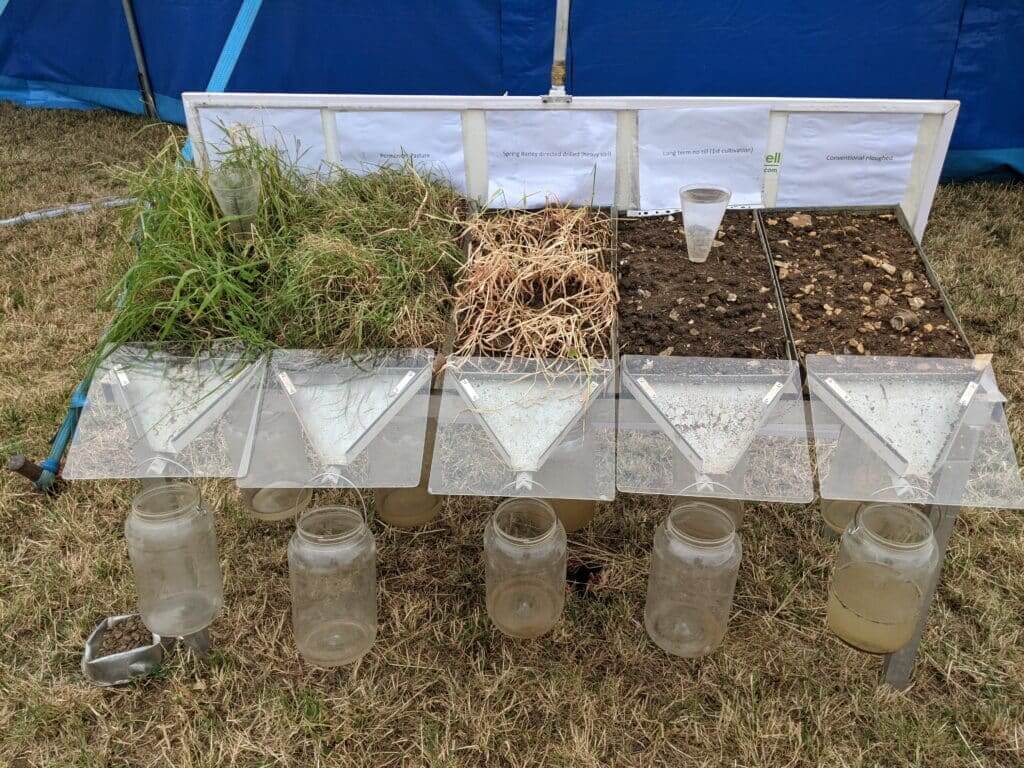
As regenerative farming has soil at its heart, pop ups around the festival explored soil care in various forms, from a rainfall simulator to demonstrate how soil that is ploughed results in more runoff, to composting demonstrations and the benefit of deep-rooting ‘cover’ crops – used by sustainable farmers to avoid bare soil and allow nutrients to remain stored in the ground.
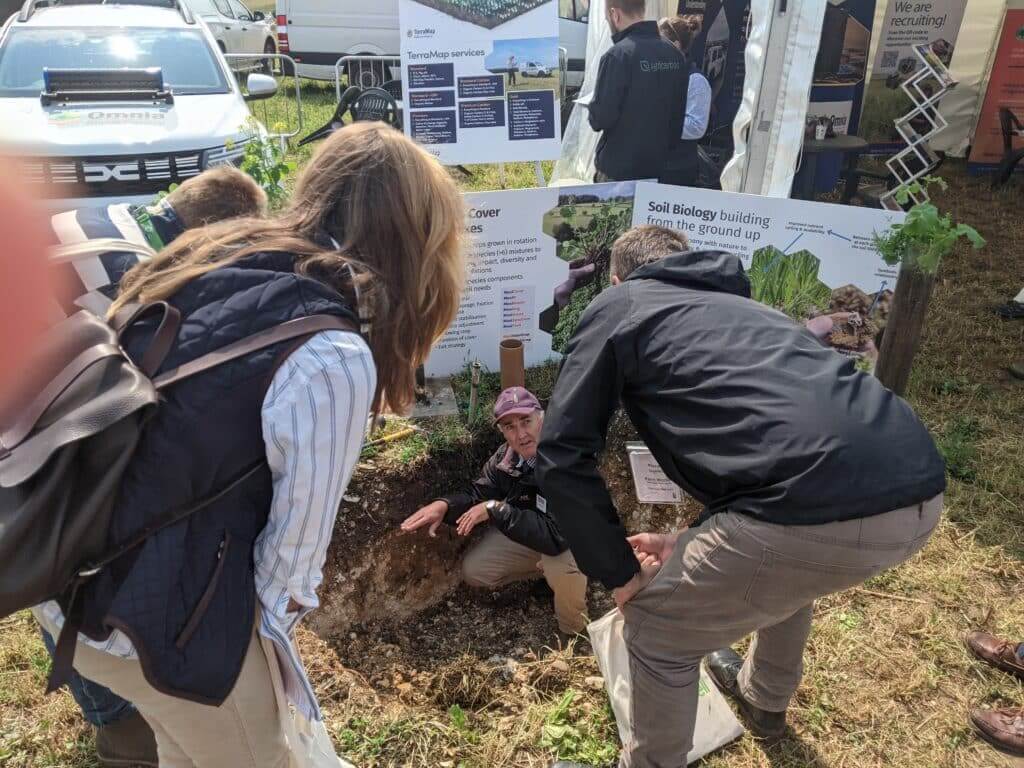
Should regenerative farming be certified? Some see a set of guiding principles as more useful for farms to interpret differently according to their soil and circumstances; others point out that when regenerative is used as a marketing term, consumers need to know what it actually stands for. A panel at the event heard both sides of the argument.
Regen is not a poor man’s organic, it’s a completely different set of circumstances. Organic is quite black and white. Mike Purnell, farm manager at Whitbread Farms, Bedfordshire
Organic has only moved the dial so far, by building a market for a certified label. We need to sort out the supply chain. I don’t want us to think that a label is going to sort out the problems we have in farming. Helen Browning, chief executive of the Soil Association and organic farmer
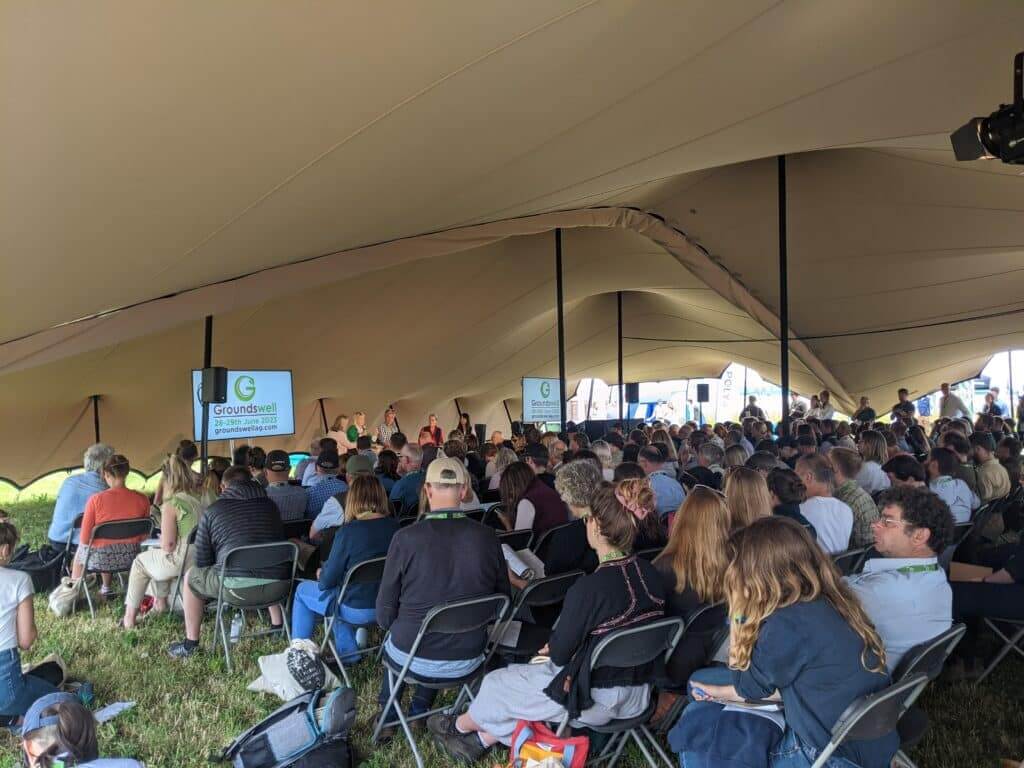
In a dynamic session called ‘Answer time’, a common theme was on the need to act now rather than wait for policies or governments to change. Agricultural economist Janet Dwyer OBE said: “Groundswell is full of people who said F off to the policy, we’re just going to do it. We’re in a time of crisis and we need to make enormous changes. So we can’t have a policy machine that is risk averse.”
The climate change problem arises from our reliance on fossil fuels. If we want to address it, then fundamentally we need to look at fossil fuels. Janet Dwyer OBE, professor of rural policy
The climate crisis was at the heart of a packed out session by Professor Mike Berners-Lee, author of There is no planet B, with standing room only as people continued to pile in. His powerful talk covered the urgency of climate action today, and how it relates to food and farming, as well as how to navigate an age of dishonesty among politicians and corporations.
Everything about how we do ‘life’ has been honed in a previous era where we could treat the world as robust and get away with it. Mike Berners-Lee, professor and founder of Small World Business
Berners-Lee stressed that there is a polycrisis of challenges now facing humanity, including food, climate, energy, population, biodiversity and plastic pollution. But he added: “For all the complexity, it’s not actually science and tech that is the bottleneck. The real challenge is what will it take to solve these challenges that are technically available?”
Speaking about food, he pointed out that “we’re in a global system whether we like it or not, and that is starting to wobble”. “We take our food security for granted in the UK and we absolutely can’t. There is no room for businesses that don’t exist to benefit people and planet.”
Showing graphs of land use across the world, he said it is “very clear that we need to reduce the amount of meat and dairy in global diets and especially the UK diet.” “There is a case for some animals, including in the UK. No one needs to go vegetarian or vegan. Human digestible food going to animals is the most destructive bit,” he added.
Other solutions he outlined included:
- Limit population, which is already topping out
- The simple ‘ready to go’ solution is reducing meat and dairy in our diets
- Land restoration for widllife
- Agroecological farming systems
- Perennial crops that require less ploughing
- Beyond photosynthesis and using lab-grown food to save land
This is not party political, though one party has a lot to answer for. Mike Berners-Lee, professor of climate science
Lab-grown food was discussed elsewhere by author, farmer and social scientist Chris Smaje, in conversation with author Sarah Langford on the launch of his new book, making the case for radical relocalisation of food systems with small farms at their heart.
An impressive roster of high-profile regenerative farmers-turned YouTube gurus, from Richard Perkins to US pioneers Joel Williams and Nicole Masters, attracted hundreds of farmers to sessions including how plants communicate underground through a mycorrhizal fungi network.
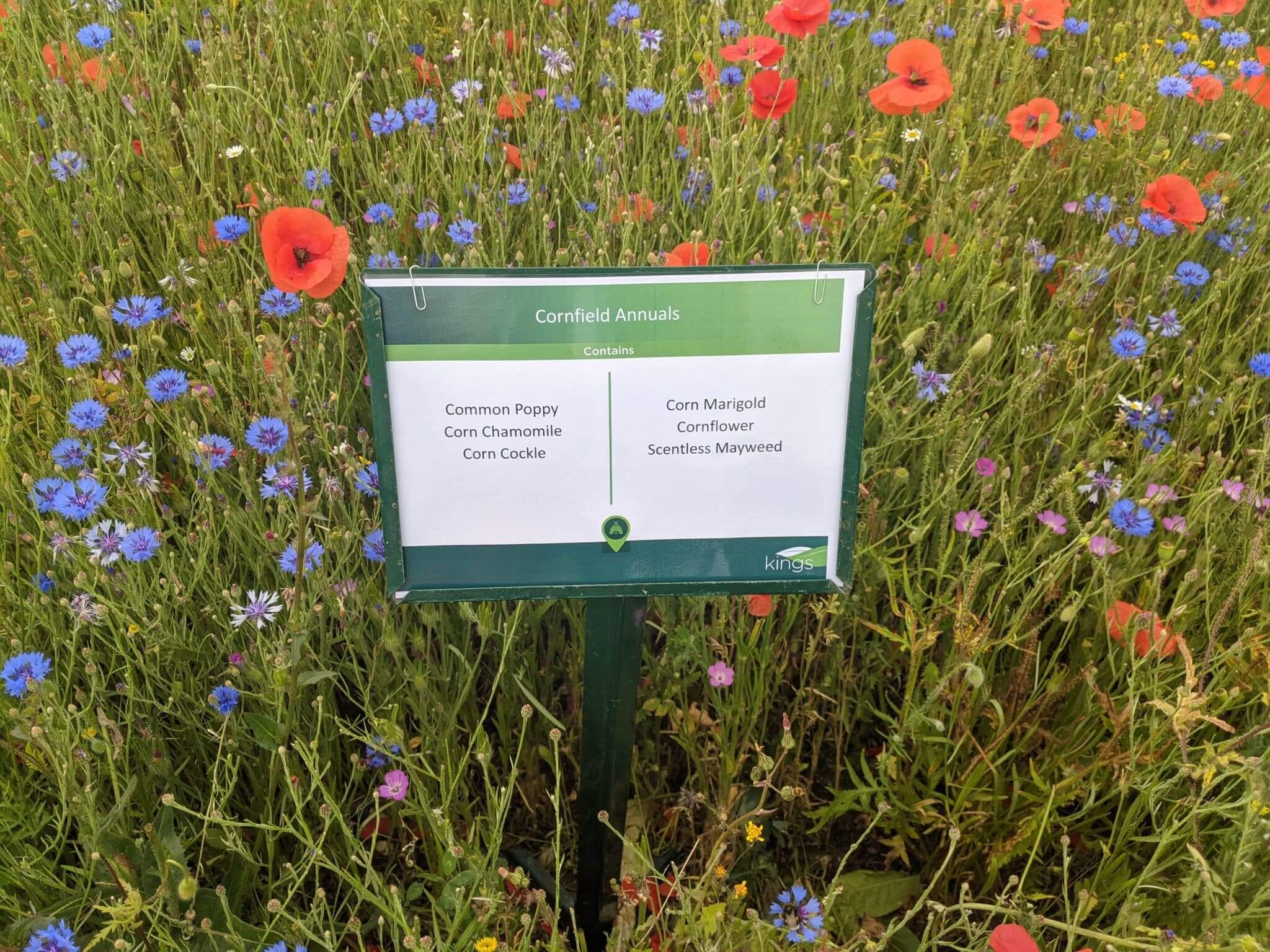
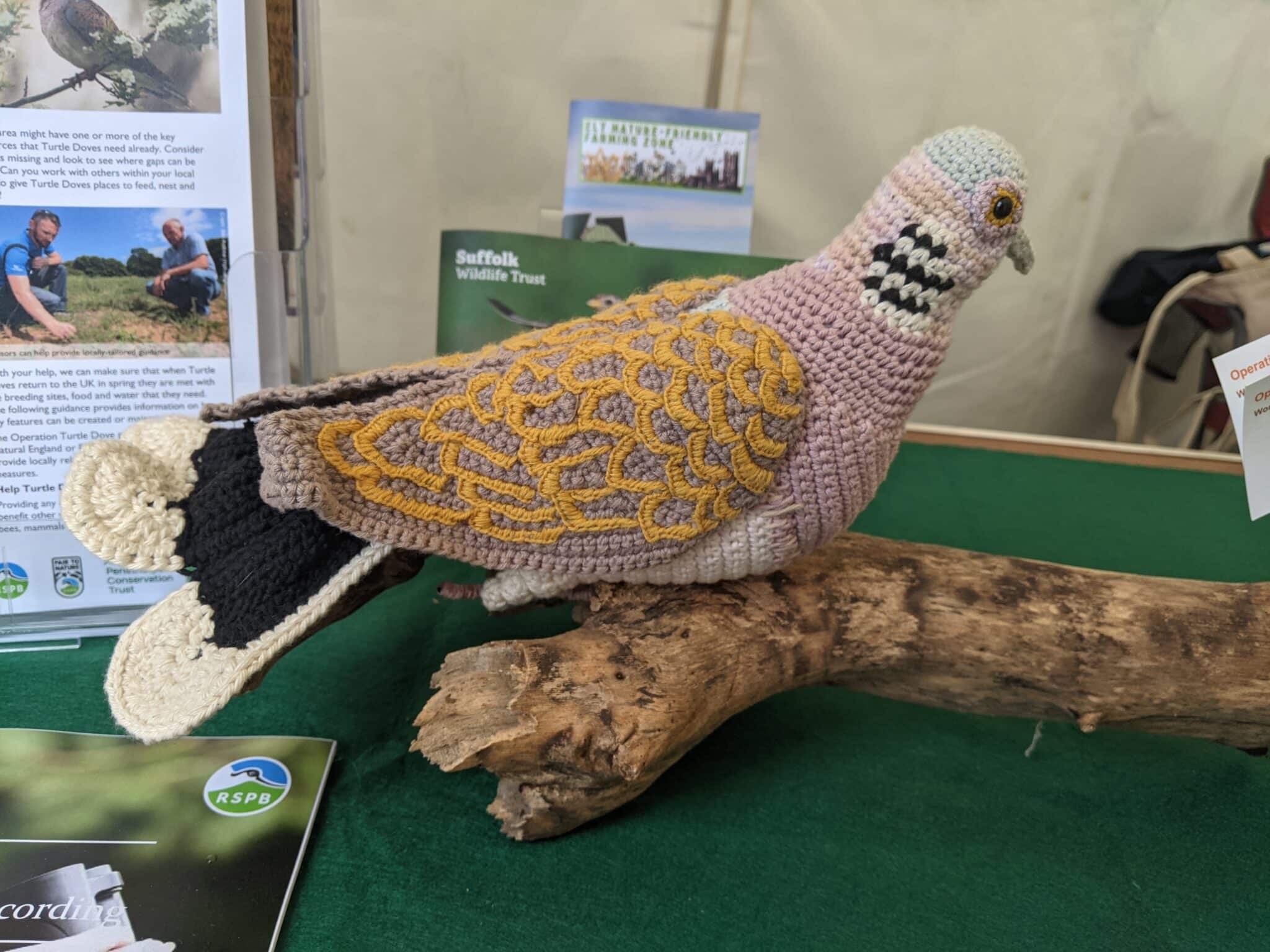
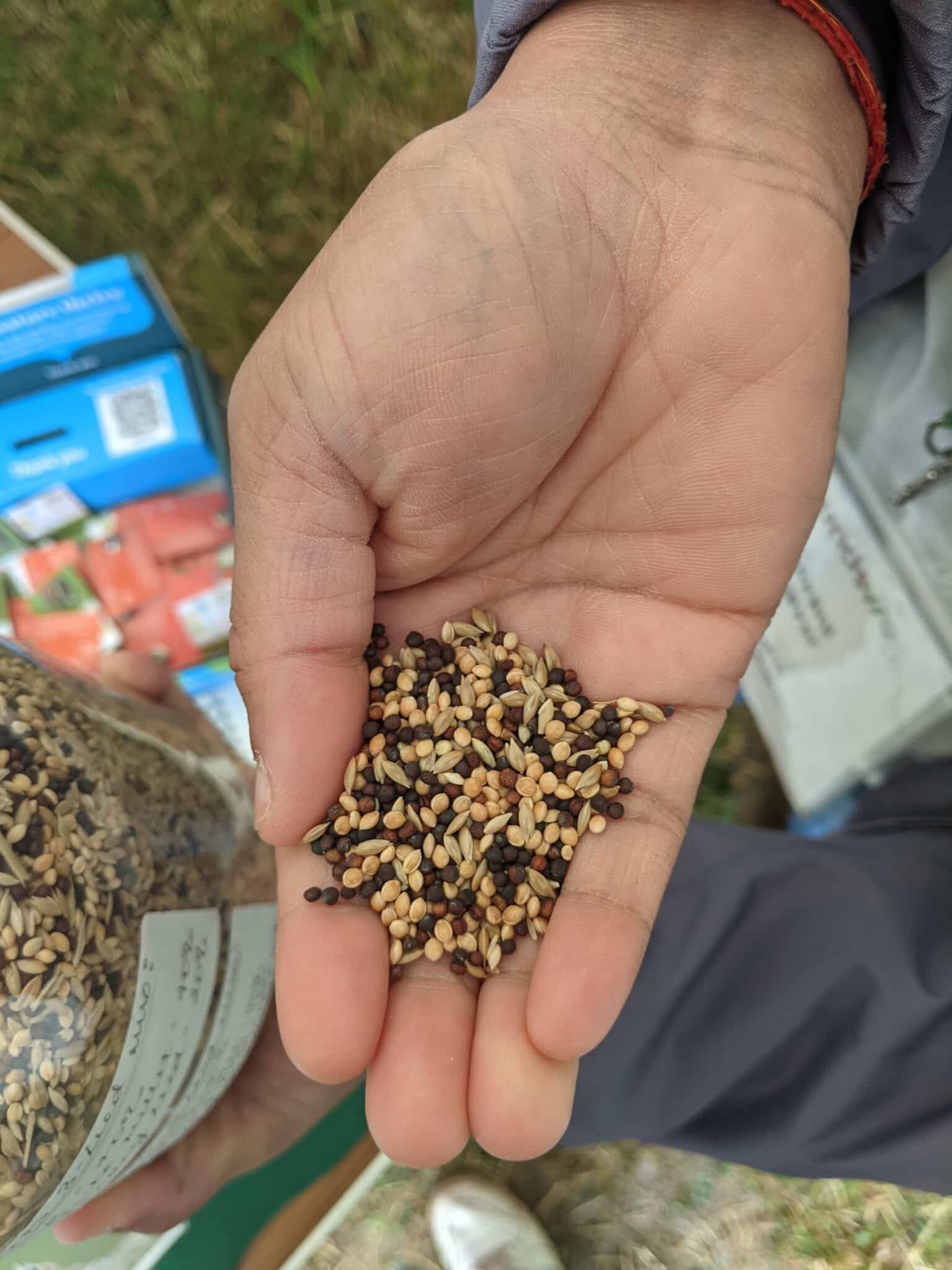
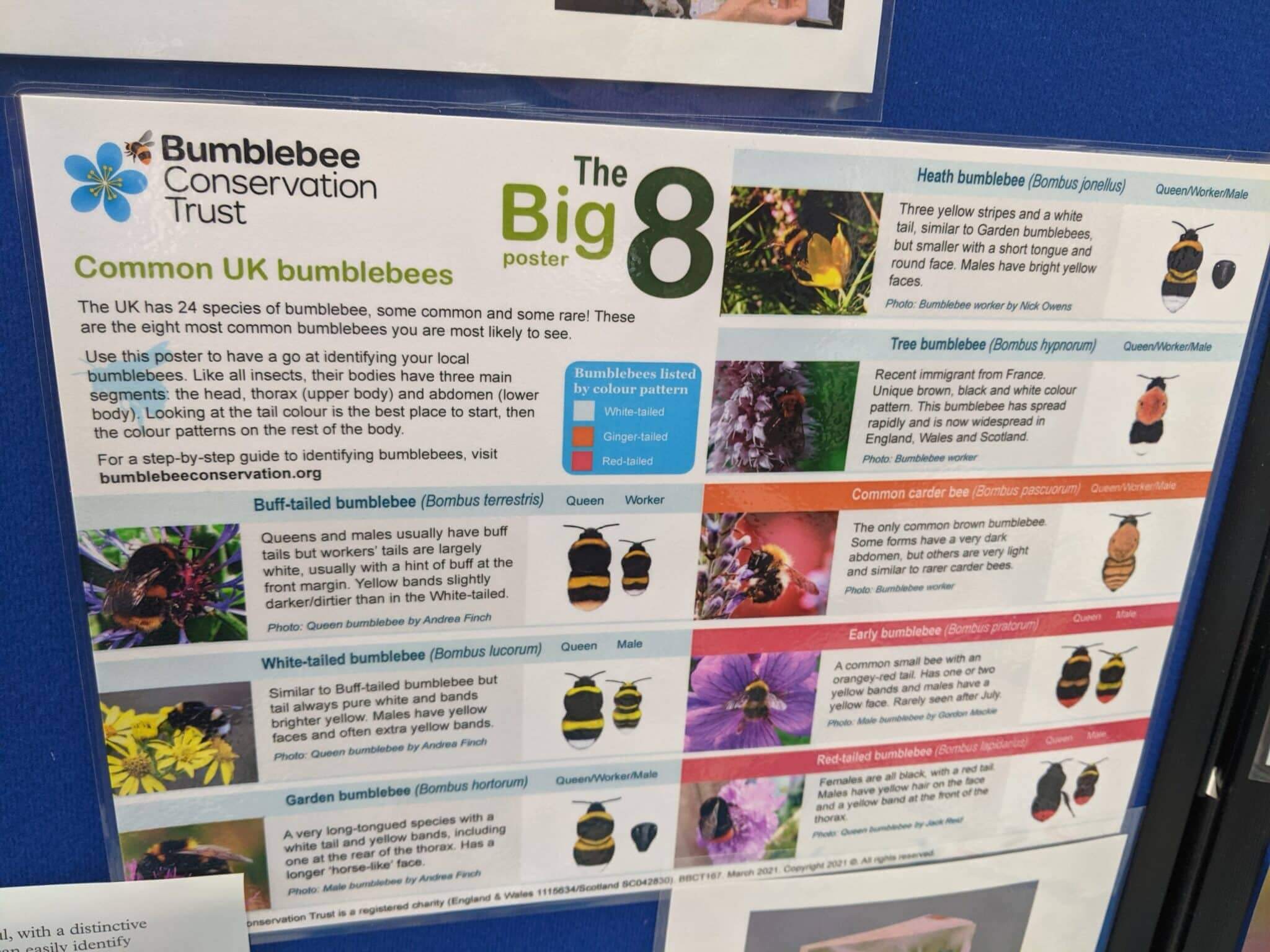
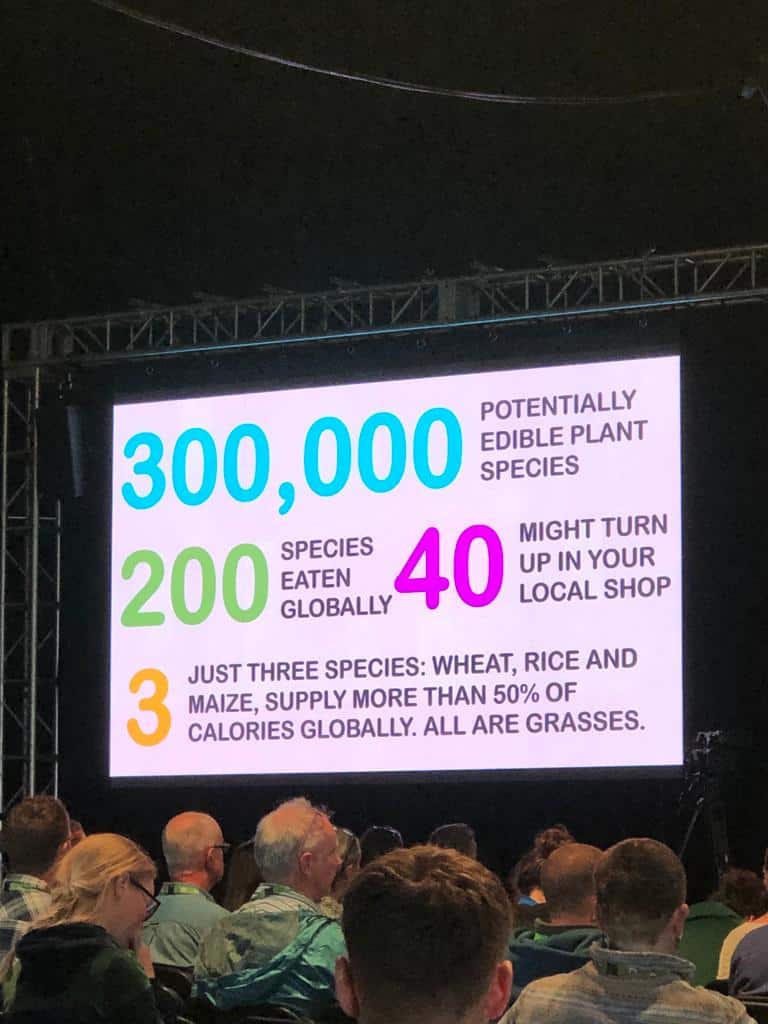
On the politics side, current Defra secretary of state Therese Coffey was seen at the event in passing but cancelled a planned press conference and the opportunity for journalists to ask questions on issues from farming subsidies to river pollution. Elsewhere, a political panel lineup including Lord Benyon of the Convervatives, farme and advisor to the Lib Dems Stuart Roberts and Labour MP and Shadow Defra minister Daniel Zeichner and Katie-Jo Luxton of the RSPB discussed a ‘consensus for food, farming and nature’, chaired by Helen Browning.
The Labour party has stood very strongly with the NFU on trade. Of course we would try to get better deals, including with our nearest neighbour the EU. Daniel Zeichner, Labour MP and Defra shadow minister
If we can address diet and embrace discussions about nutrition, there must be a way of doing that. There is a need for social science – how do we take an entire community on that journey? Stuart Roberts, farmer and advisor to the Lib Dems
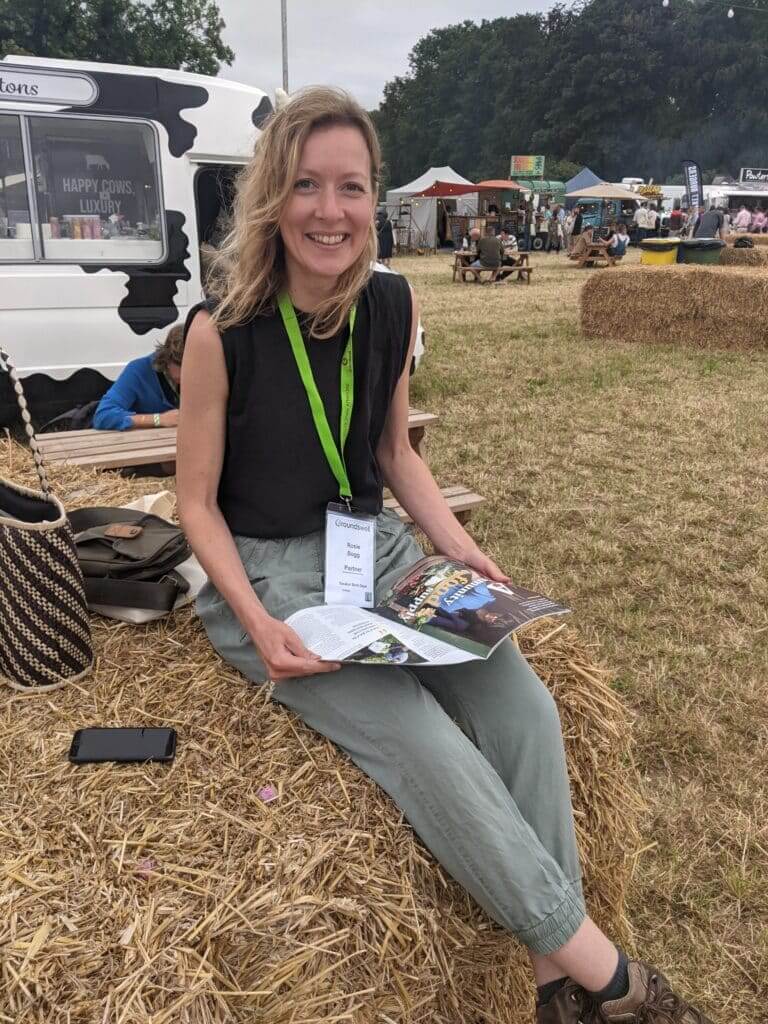
While regenerative farming has typically been practised by arable and livestock farmers, who can use animals to reduce synthetic inputs, this year saw some fruit and veg growers talk about how they are starting to reduce the impact of their farms.
We’ve had rejections of perfectly good crops that we’ve managed to do without any ploughing and it will be something like a bit of stubble, or one of our beneficial insects. We have the pressure of biodiversity restoration, which we welcome, and we have the pressure of zero tolerance on contaminants. Piotr Nowak, veg grower and supermarket supplier
In a session on ‘regenerative veg’, discussions ranged from the pressure of aesthetic perfection from supermarket to the role of glyphosate in keeping veg affordable.
What is the role of glyphosate specifically in regenerative agriculture? I don’t think we can have this conversation without addressing this. Question from the floor
We can do it without it, it’s just a lot more expensive. I don’t particularly want to buy agrochemicals. At the moment it’s the tool that keeps us competitive. Greg Colebrook, director of Greens of Soham and veg grower in The Fens
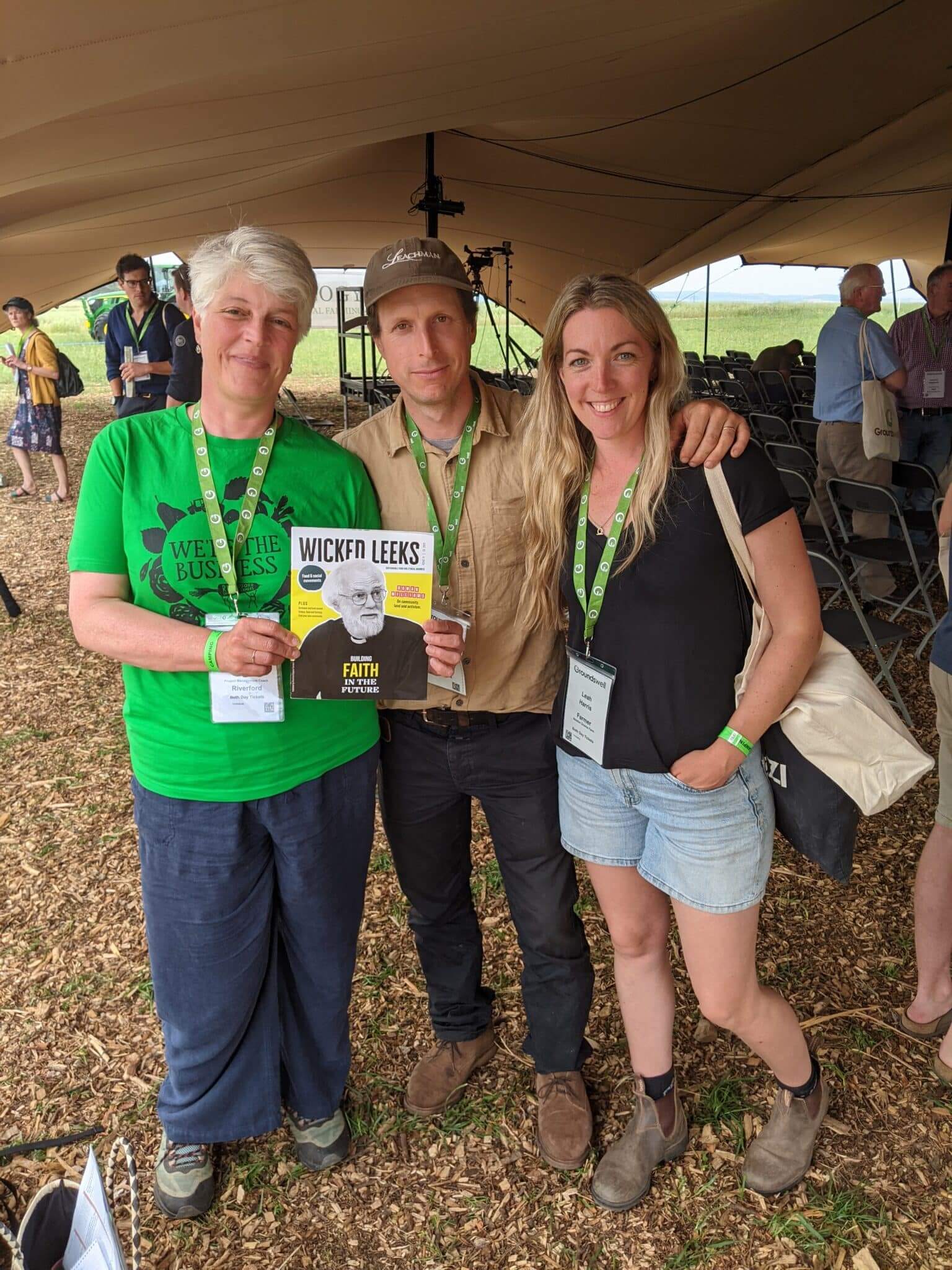

As the event closed each night with a DJ set from Groove Armada frontman turned regenerative grain farmer Andy Cato, the mood was summed up by Helen Browning:
Groundswell is always a moment where it feels like everything is possible. We just need to keep our feet to the fire to make sure it comes about. Helen Browning, chief executive of the Soil Association and organic farmer

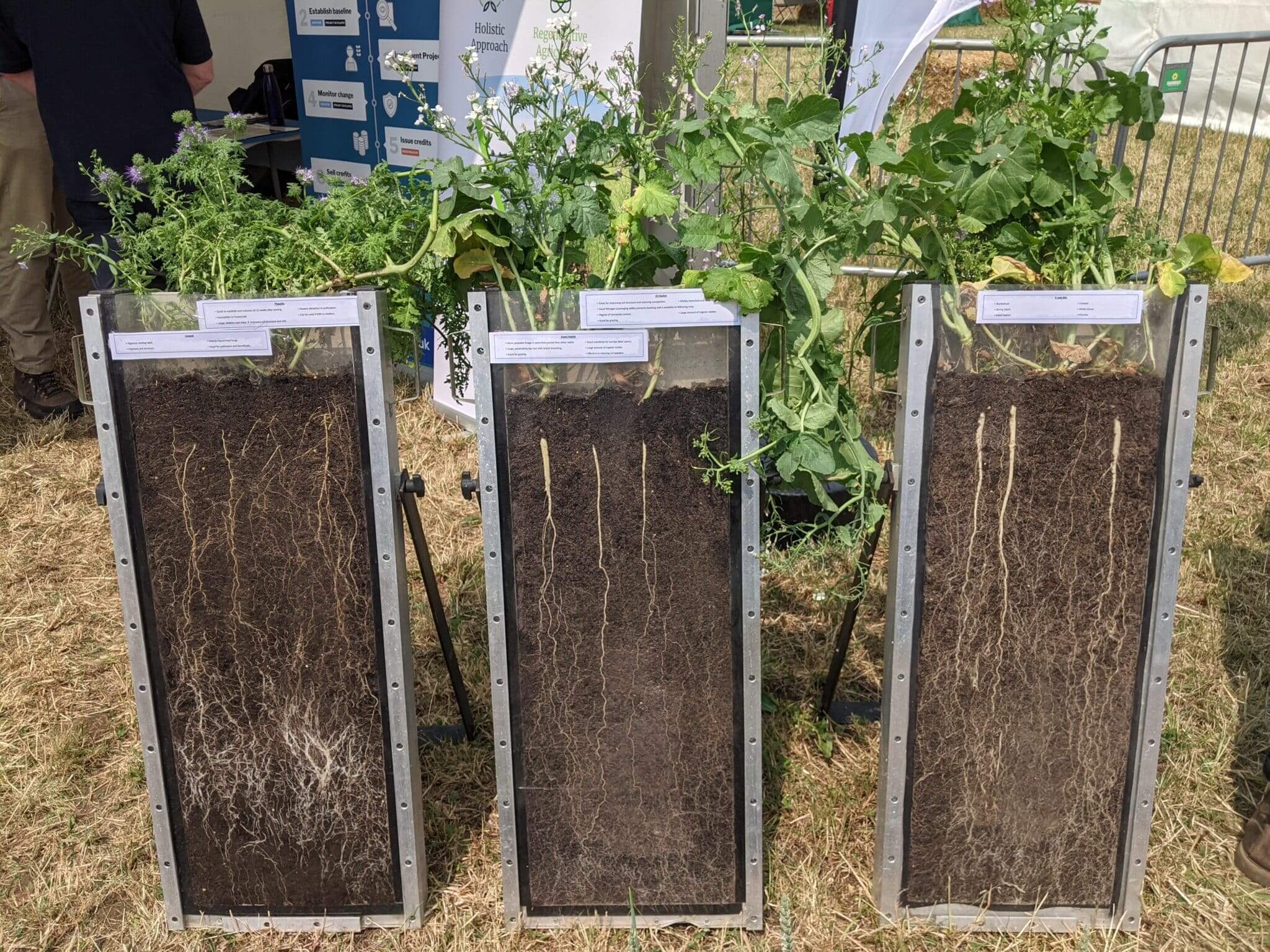







It is encouraging that many farmers/growers are getting on with Regen or Organic ways without waiting for our idiot greed-monster polititians to catch up! I think we all have to do this – whatever arena we live our lives in – we can make decisions that benefit the planet – and definitely don’t benefit the greed-monsters!!